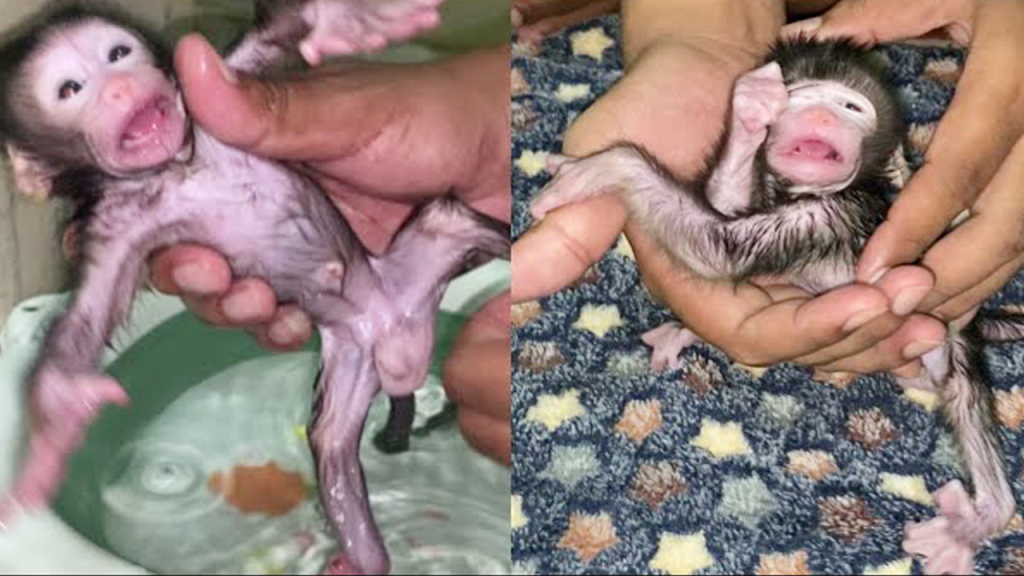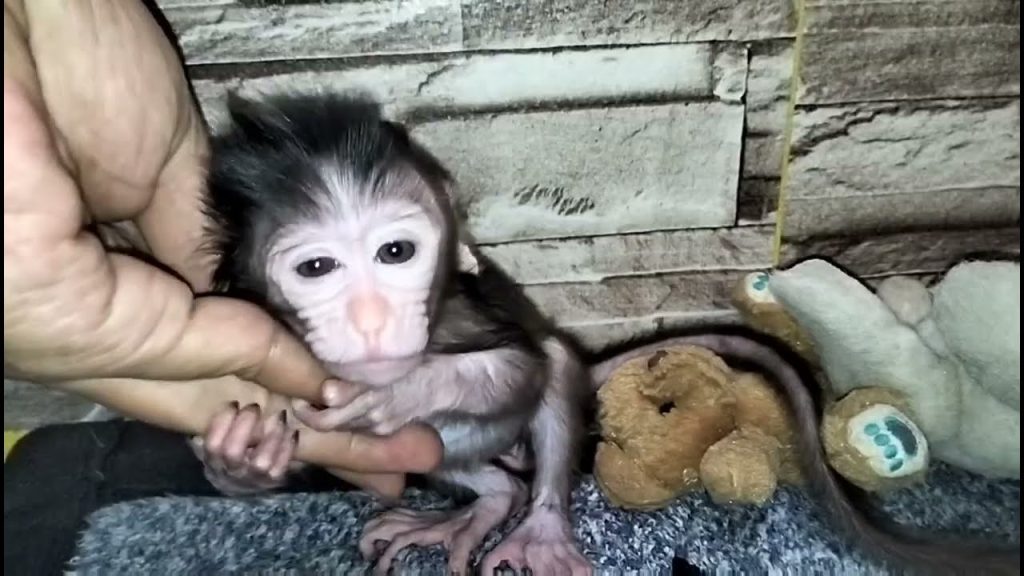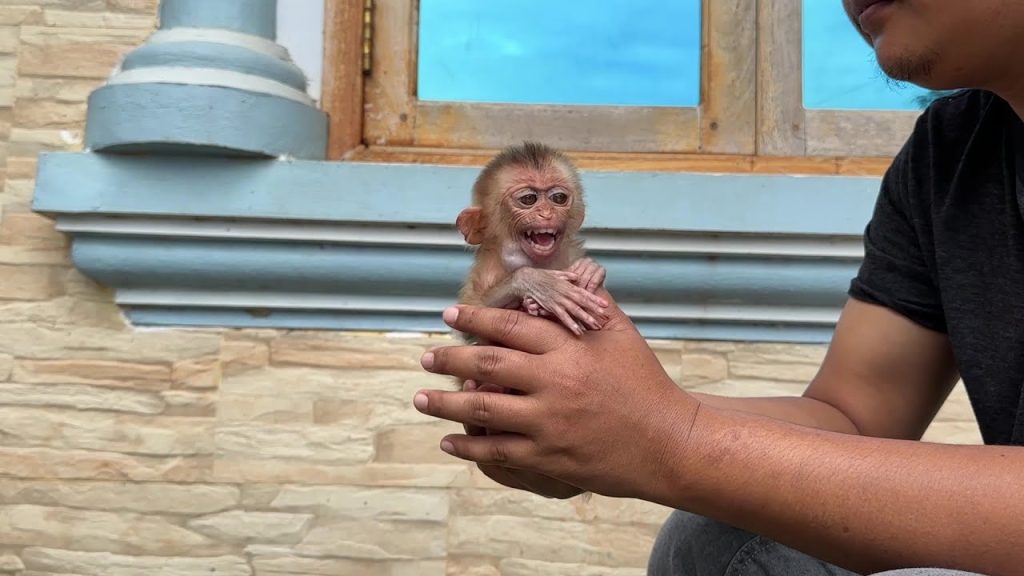
A newborn baby monkey showing anger is both fascinating and touching, because even at just a few days old, these tiny creatures can express big emotions. When a newborn becomes angry, it isn’t true anger the way adults experience it—it is a mixture of discomfort, fear, and the overwhelming need for attention and security. His little face tightens, his eyes widen or squeeze shut, and he lets out sharp, high-pitched cries that echo the intensity of his feelings.
At this age, newborn monkeys rely entirely on instinct. They cannot understand the world yet, so every unfamiliar sound, temperature change, or sudden movement can trigger a strong reaction. When the newborn becomes “angry,” it often means something in his environment feels wrong. He might be cold, hungry, tired, frightened, or missing the warmth of his mother. Because he cannot speak, his only way to communicate is through sound and movement. That is why his cries are loud, his tiny hands wave or reach out, and his body stiffens as if demanding someone to come help him.
If he has been separated from his mother, the anger becomes even more understandable. Newborn monkeys naturally cling to their mother’s chest all day, feeling her heartbeat and warmth. Without that comfort, fear grows quickly. His frustration is a desperate call for safety, not misbehavior. When a caretaker tries to hold him, feed him, or clean him, the baby may react with more loud cries or jerky movements simply because he isn’t used to this new kind of care yet.
Gentle handling plays a major role in calming his anger. Soft touches, slow movements, and warm cloths help him feel secure. Offering milk can soothe him immediately, because hunger is one of the main triggers for newborn distress. Once he begins to drink, his breathing softens, his body relaxes, and the angry sounds fade into quiet whimpers or soft, sleepy chirps. The warmth of being held close mimics the presence of his mother, giving him emotional comfort as well as physical protection.
As he calms down, his tiny features change. Instead of a scrunched, tense face, his eyes open slowly, observing his surroundings with curiosity rather than panic. His hands, once clenched tightly, begin to loosen and rest gently on the caregiver. The anger disappears as quickly as it came, replaced by vulnerability and trust.
Watching a newborn monkey move from anger to calm reminds us how sensitive and emotional these little beings are. With patience, warmth, and love, even the tiniest burst of frustration becomes an opportunity to comfort, protect, and bond with a baby who is just beginning to understand the world.


